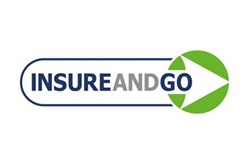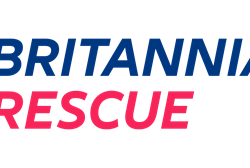
Pet Insurance
Choose from Lifetime, 12 Month or Accident Only cover for your favourite furry friends, including a 24 hour Vet Advice Line and a multi-pet discount.
Love it? Cover it with Asda

From your car to your pets, we know how important it is to protect the things you love. We've done the legwork to find you insurance products from our trusted partners, so you can get the cover you need at a competitive price, whether you're heading off on the holiday of a lifetime or want car insurance you can rely on.

Choose from Lifetime, 12 Month or Accident Only cover for your favourite furry friends, including a 24 hour Vet Advice Line and a multi-pet discount.

Relax and unwind in the knowledge your holiday is covered by our award-winning travel insurance.

Compare hand-picked insurers to find great cover at the cheapest price for your wheels.

Find your perfect home insurance with a hand-picked selection of insurers and keep your home safe without breaking the bank.
Breakdown cover you can rely on when you need it most.
Insurance designed for the unique needs of motorcyclists.
Compare the best van insurance providers to find exactly what you need.
Keep your motorhome covered wherever you’re heading off to.
Take peace of mind with you as well as your caravan, knowing you’re covered.
Known for putting value for money at the centre of everything we do
Trusted partners carefully chosen by us
High quality products with the same great value and service you expect from Asda
For each each insurance product and services we carefully select which financial services provider to work with.
We call them our ‘partners’ because we work together to provide our customers with products and services that offer great value and great customer service – just what you’d expect from Asda.
We are committed to bringing you products and services that you can trust. We are constantly reviewing all our products – the price, the features and benefits and the customer service. These products and services win awards – something we are very proud of.



ASDA Money is a trading name of Asda Financial Services Ltd and Asda Stores Ltd which for general insurance are Introducer Appointed Representatives of Vast Visibility Limited, 8 Princes Parade, Liverpool, L3 1DL, authorised and regulated by the Financial Conduct Authority. Firm reference number 566973. You can check these details on the FCA Register.
The ASDA home, car and other motor comparison services are arranged by and administered by Vast Visibility Limited.
Asda Money is a trading name of Asda Financial Services Ltd and Asda Stores Ltd, acting as an introducer to Liverpool Victoria Insurance Company Limited. Motor Breakdown Cover is provided and underwritten by Liverpool Victoria Insurance Company Limited. Britannia Rescue is a trading name of Liverpool Victoria Insurance Company Limited which is a part of the Allianz Group, registered in England and Wales number 3232514. Authorised by the Prudential Regulation Authority and regulated by the Financial Conduct Authority and the Prudential Regulation Authority, register number 202965. Registered address: 57 Ladymead, Guildford, Surrey, GU1 1DB.
Asda Pet Insurance is arranged and administered by Insurance Factory Limited. Insurance Factory Limited is authorised and regulated by the Financial Conduct Authority. (No. 306164). Registered in England and Wales Number 02982445. Registered Office: Markerstudy House, 45 Westerham Road, Bessels Green, Sevenoaks, Kent, TN13 2QB. You can check this by visiting the Financial Services Register at https://www.fca.org.uk/register
ASDA Money is a trading name of Asda Financial Services Ltd and Asda Stores Ltd which for travel insurance are Introducer Appointed Representatives of Insure & Go Insurance Services Ltd. Asda Travel Insurance is arranged by IES Limited, which is registered in Gibraltar company number 117274. Registered Office: 1st Floor, Portland House, Glacis Road, Gibraltar, GX11 1AA. IES Limited is licensed and regulated by the Gibraltar Financial Services Commission number FSC25393 and trades into the UK on a freedom of services basis, FCA FRN 824283. Asda Travel Insurance is administered by Insure & Go Insurance Services Limited. Insure & Go Insurance Services Limited is authorised and regulated by the Financial Conduct Authority, firm reference number 309572.
Our Travel Insurance policy now covers for Medical costs and Cancellation claims on policies where customers or a member of their family / travelling party are diagnosed with Coronavirus, or are personally instructed to quarantine because of Coronavirus by an NHS service or healthcare professional. All other claims relating to COVID-19 or Government restrictions on travel are excluded. If the FCDO advises against travel to your destination because of Coronavirus, we will still be able to cover you for non-Coronavirus related claims. For more details on this, please see our FAQs.
*Up to three kids go free per insured adult, subject to medical screening, when you buy direct from us.



